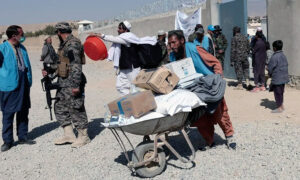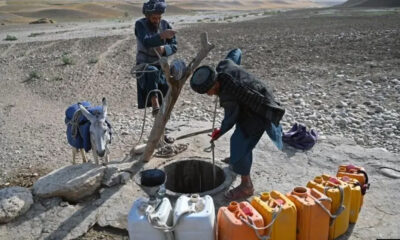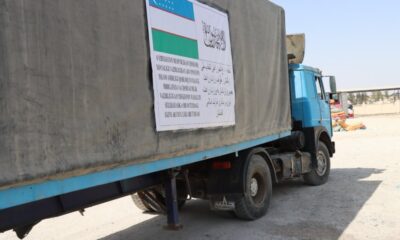Latest News
US State Department rejects claims it funds the IEA
The United States remains the largest donor to Afghanistan and has provided nearly $18 billion dollars to Afghanistan in the last three years.
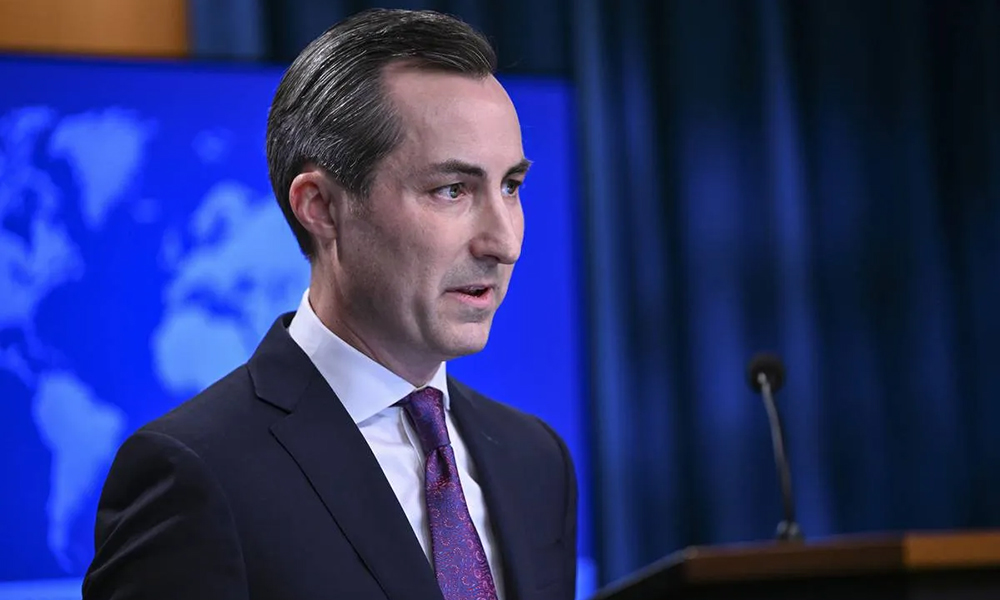
Matthew Miller, the spokesperson of the US State Department, has once again emphasized that the US does not provide direct financial aid to the Islamic Emirate of Afghanistan (IEA).
In response to a question that US financial aid to Afghanistan may have gone to the wrong people, Miller said at a press conference on Monday night in Washington that “when it comes to US funding of the Taliban [Islamic Emirate], no, we flatly do not fund the Taliban [Islamic Emirate]. Made that clear on a number of occasions.”
Recently the Office of the Special Inspector General for the Reconstruction of Afghanistan (SIGAR) said the State Department did not assess aid to agencies in Afghanistan in accordance with US policies.
However, the US State Department agreed with the report’s findings and said that it will work to scrutinize the country’s aid to Afghanistan.
But the Islamic Emirate rejects any misuse of aid from the international community, including the United States.
Afghanistan’s Ministry of Economy has also rejected claims of misuse of humanitarian aid and says that aid is provided to deserving and needy people in a transparent manner and with complete trust.
The United States remains the largest donor to Afghanistan and has provided nearly $18 billion dollars to Afghanistan in the last three years.
In an earlier report, SIGAR stated that during the last three years, US aid implementation partners in Afghanistan had paid at least $10.9 million in taxes and money for water and electricity to the current Afghan government.
Related Stories:
SIGAR finds US aid vetting failures may have benefited militants in Afghanistan
Latest News
Afghan energy minister leaves for international energy conference in Uzbekistan
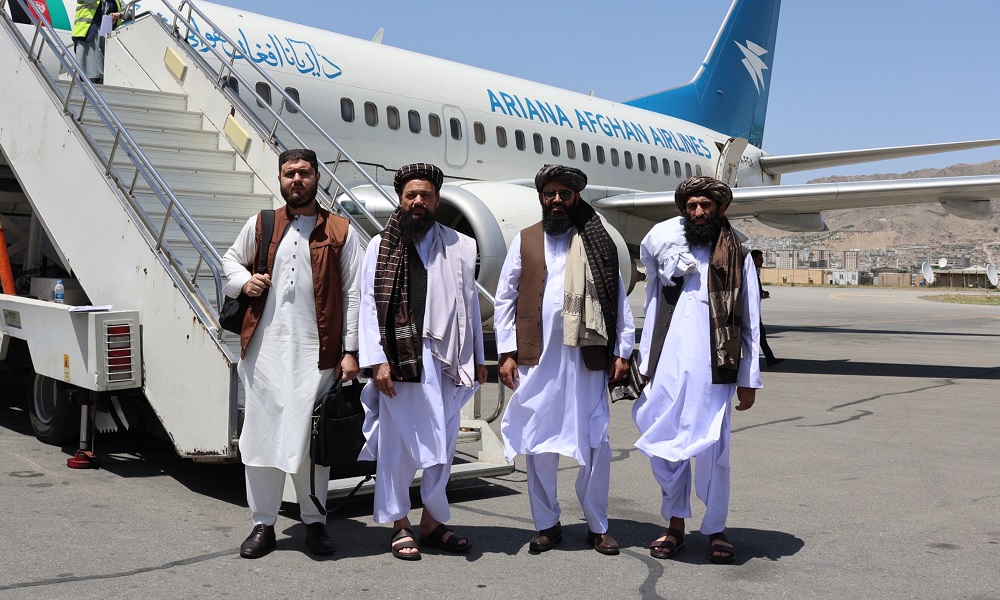
Acting Minister of Energy and Water Abdul Latif Mansoor has left Kabul for Tashkent to participate in the fifth Uzbekistan International Energy Conference.
The event is part of Energy Week of Uzbekistan 2025 that is focused on regional partnership for sustainable energy. It will be held from May 13 to 15.
The aim of the summit is to strengthen regional cooperation, attract investment in joint energy projects, exchange experiences and promote green technology, the Ministry of Energy and Water said in a statement.
During the conference, Mansoor is expected to emphasize expanding cooperation with regional countries, attracting foreign investment and using successful international experiences in the field of energy resource management, the statement said.
Representatives of regional countries, including Uzbekistan, Kazakhstan, Turkmenistan, Russia, as well as organizations s such as the International Atomic Energy Agency and the World Bank, are expected to attend the conference.
International Sports
IPL 2025: Update!
Indian media outlets reported that the BCCI has informed the ten IPL franchises to call back all their foreign players

The Indian Premier League (IPL) Governing Council will reportedly meet today, Monday, May 12, over the resumption of IPL 2025.
According to Cricbuzz, the Board of Control for Cricket in India (BCCI) might also announce the roadmap later in the day.
On Monday evening however, some Indian media outlets reported that the BCCI has informed the ten IPL franchises to call back all their foreign players, as a decision on the resumption of the 18th edition of the cash-rich league is coming soon.
However, no official announcement has yet been made by either the BCCI or the IPL council.
The last time the IPL was stopped midway through the tournament was during the COVID-19 pandemic. The IPL 2021 season, which kicked off in April, had to be suspended due to a national lockdown. The second half took place in the UAE later that year.
Speaking to local media after the decision to suspend the tournament Devajit Saikia said: “In the next few days, we will begin consultations with the franchises, broadcasters, sponsors and the state associations slated to host the remaining matches before crystallizing a decision on the league’s resumption.
“Given the importance of IPL at this juncture, it will also be prudent and necessary to take the nod of the Government of India before finalising the time for its restart.”
The board made the decision a day after calling off the Punjab Kings-Delhi Capitals match in Dharamsala due to security concerns.
The suspension however will have a stark impact on foreign players. Already a number of them have indicated that its unlikely that they will feature in the remaining games of the season.
Among those are Australian pacers Mitchell Starc and Josh Hazlewood.
Both players have already returned to Australia, and their participation in the remaining 12 league matches and the playoffs – if their franchises qualify – remains doubtful.
Australia captain Pat Cummins, Starc and Hazlewood’s colleague in the pace department, might not enjoy that luxury as he captains Sunrisers Hyderabad and his availability is crucial for the franchise.
While tensions have eased between New Delhi and Islamabad after the two countries agreed to a ceasefire on Saturday, India’s government is expected to wait for a few more days before giving the BCCI the go-ahead to resume the tournament.
Latest News
OCHA warns of intensifying water crisis in Afghanistan
OCHA noted that while some areas of Afghanistan have seen rainfall approaching average levels, overall precipitation remains significantly below normal.
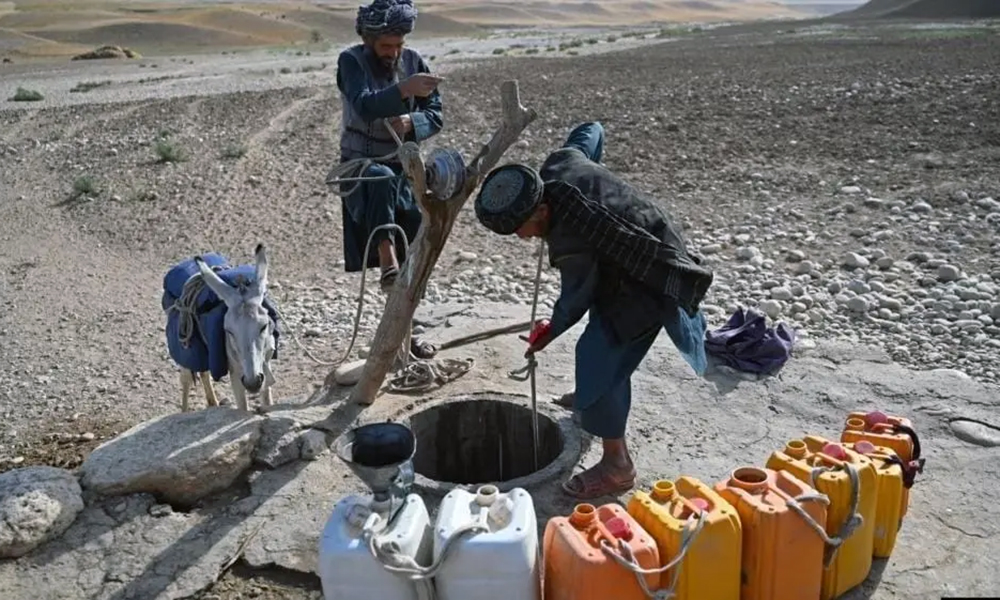
The United Nations Office for the Coordination of Humanitarian Affairs (OCHA) has issued a warning about the worsening water crisis in Afghanistan, citing below-average rainfall across much of the country.
In a recent report, OCHA noted that while some areas of Afghanistan have seen rainfall approaching average levels, overall precipitation remains significantly below normal.
Snowmelt volumes in most river basins are also lower than average and continuing to decline—further aggravating the water shortage.
OCHA highlighted that data from the Agricultural Stress Index (ASI) indicates markedly reduced vegetation growth in many regions, signaling the onset of drought conditions.
The agency also reported that soil moisture at root depth is critically low in most parts of the country, with the exception of some northern and northeastern provinces.
This poses serious concerns for agricultural productivity.
OCHA added that land surface temperatures across Afghanistan are above average, apart from limited areas in the northeastern provinces.
Forecasts suggest that above-average temperatures and below-normal rainfall are likely to persist in the coming months.
These conditions, the report warns, are expected to intensify the water crisis, leading to further declines in crop yields and damaging pasturelands vital for livestock.
As of March, this year, the provinces of Faryab and Jawzjan in northern Afghanistan have been identified as the most severely affected by reduced precipitation and rising temperatures. Other areas at critical risk include Helmand in the south, Herat in the west, Kunduz in the northeast, and Nangarhar in the east.
Afghanistan has been grappling with severe drought and declining rainfall for several consecutive years.
The prolonged droughts have depleted water supplies across the country, including in major urban centers, leaving many communities with limited access to safe drinking water.
The country is also increasingly vulnerable to extreme weather events, including flash floods, and remains one of the most climate-vulnerable nations in the world—despite contributing minimally to global greenhouse gas emissions and climate change.
-

 Regional5 days ago
Regional5 days agoIndia dismisses report of Pakistan downing jets as “disinformation”
-

 Sport4 days ago
Sport4 days agoAriana Television to broadcast 4th edition of Afghanistan Futsal Premier League
-
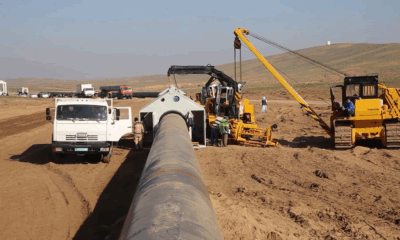
 Latest News4 days ago
Latest News4 days agoTAPI pipeline to reach Herat by end of 2025: Ministry
-

 Latest News4 days ago
Latest News4 days agoNearly one-third grapple with hunger in Afghanistan: WFP
-

 Sport4 days ago
Sport4 days agoIPL 2025: Dharamsala match abandoned due to security concerns
-

 Latest News4 days ago
Latest News4 days agoUzbekistan, Poland discuss cooperation over Afghanistan
-

 Regional4 days ago
Regional4 days agoIndia says military stations attacked by Pakistan drones and missiles
-

 Tahawol5 days ago
Tahawol5 days agoTahawol: Ministry of Labor and Social Affairs’ activities reviewed

